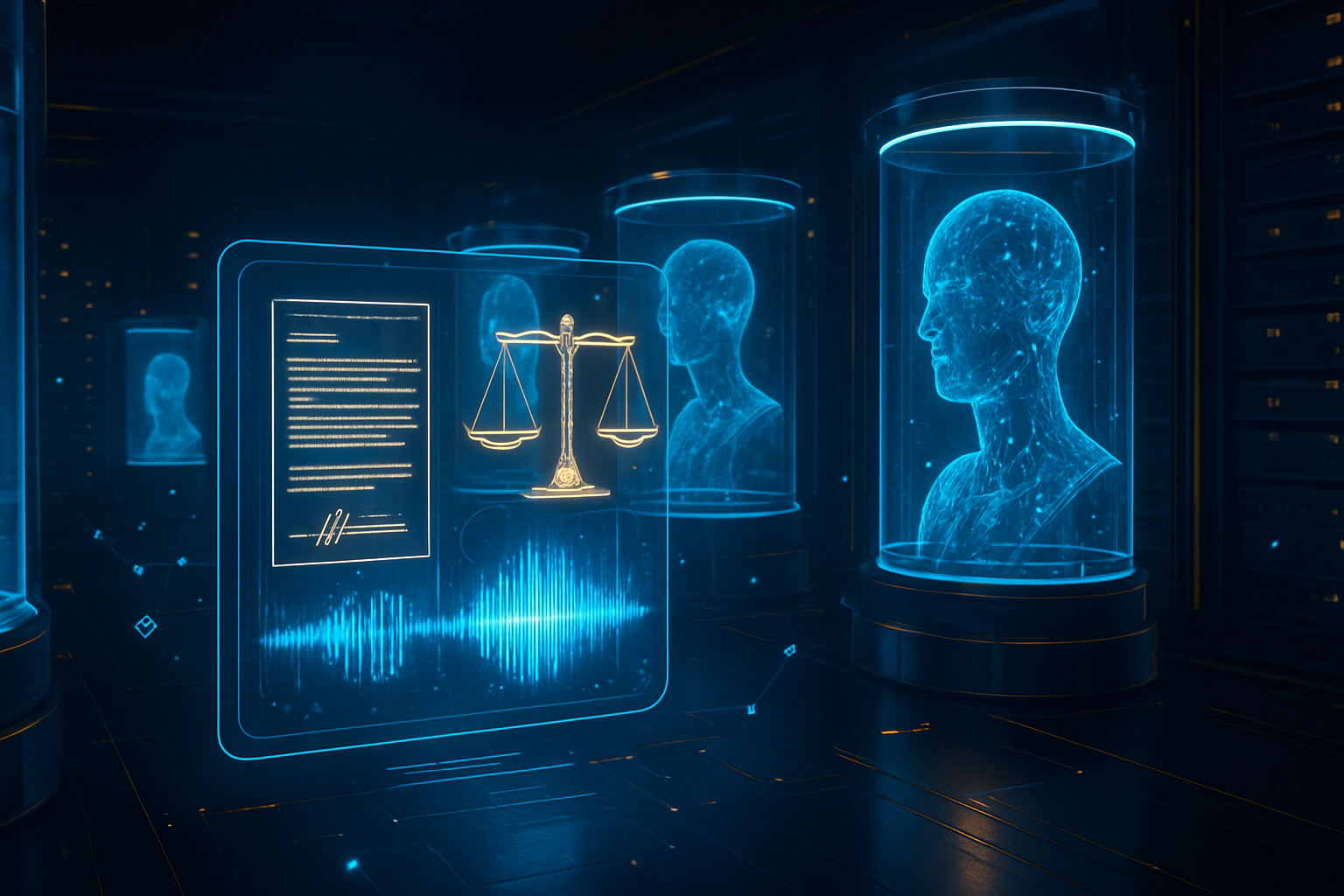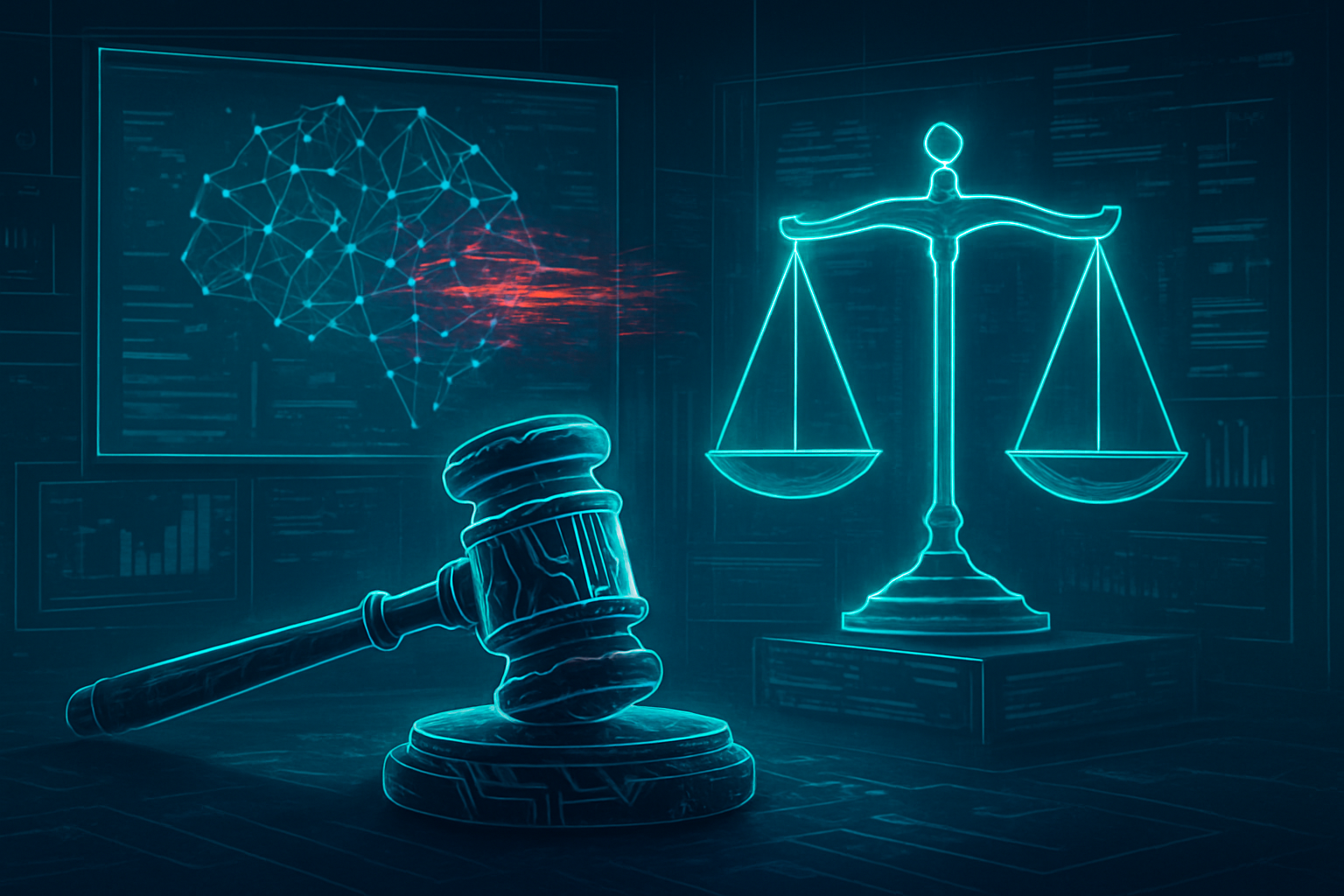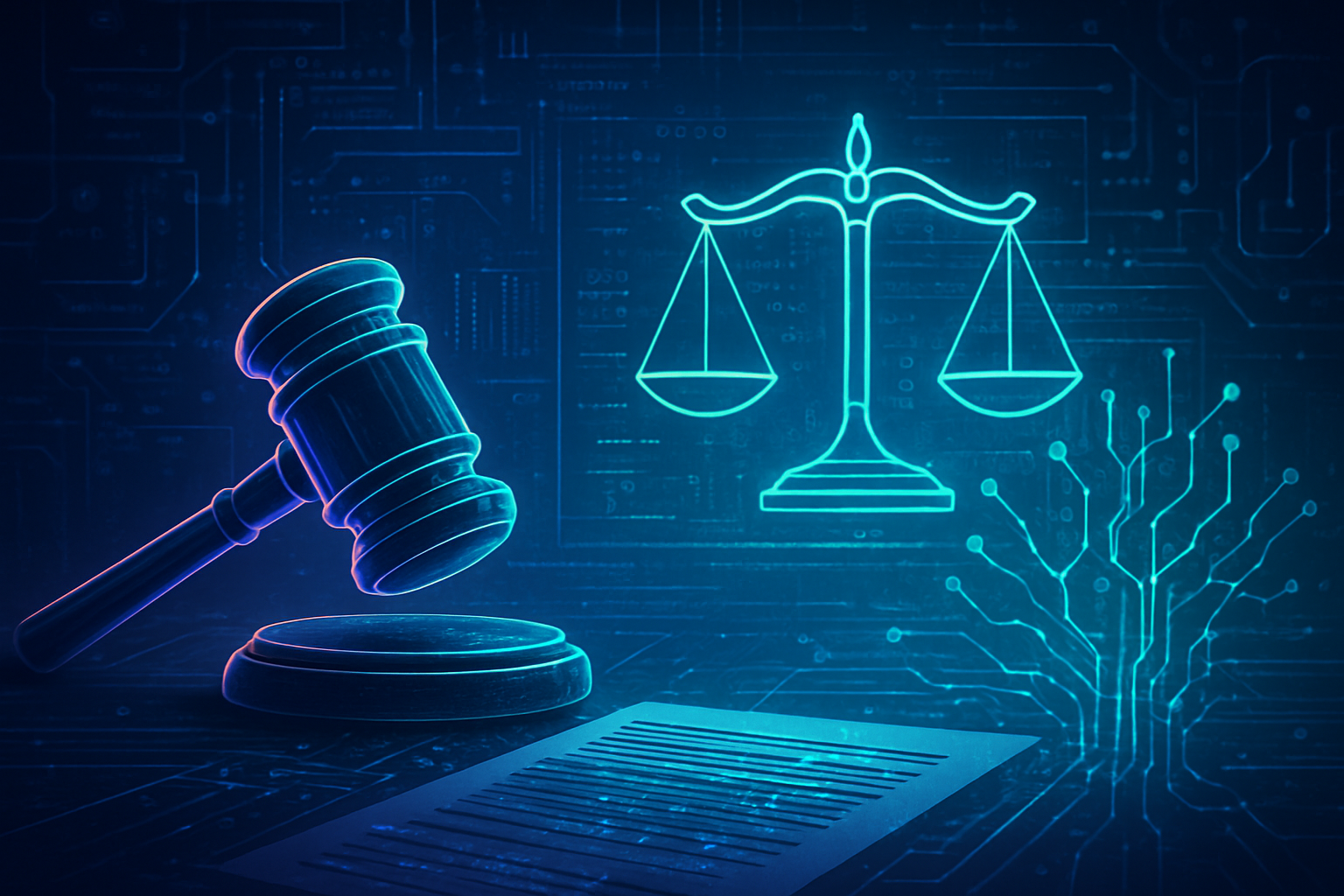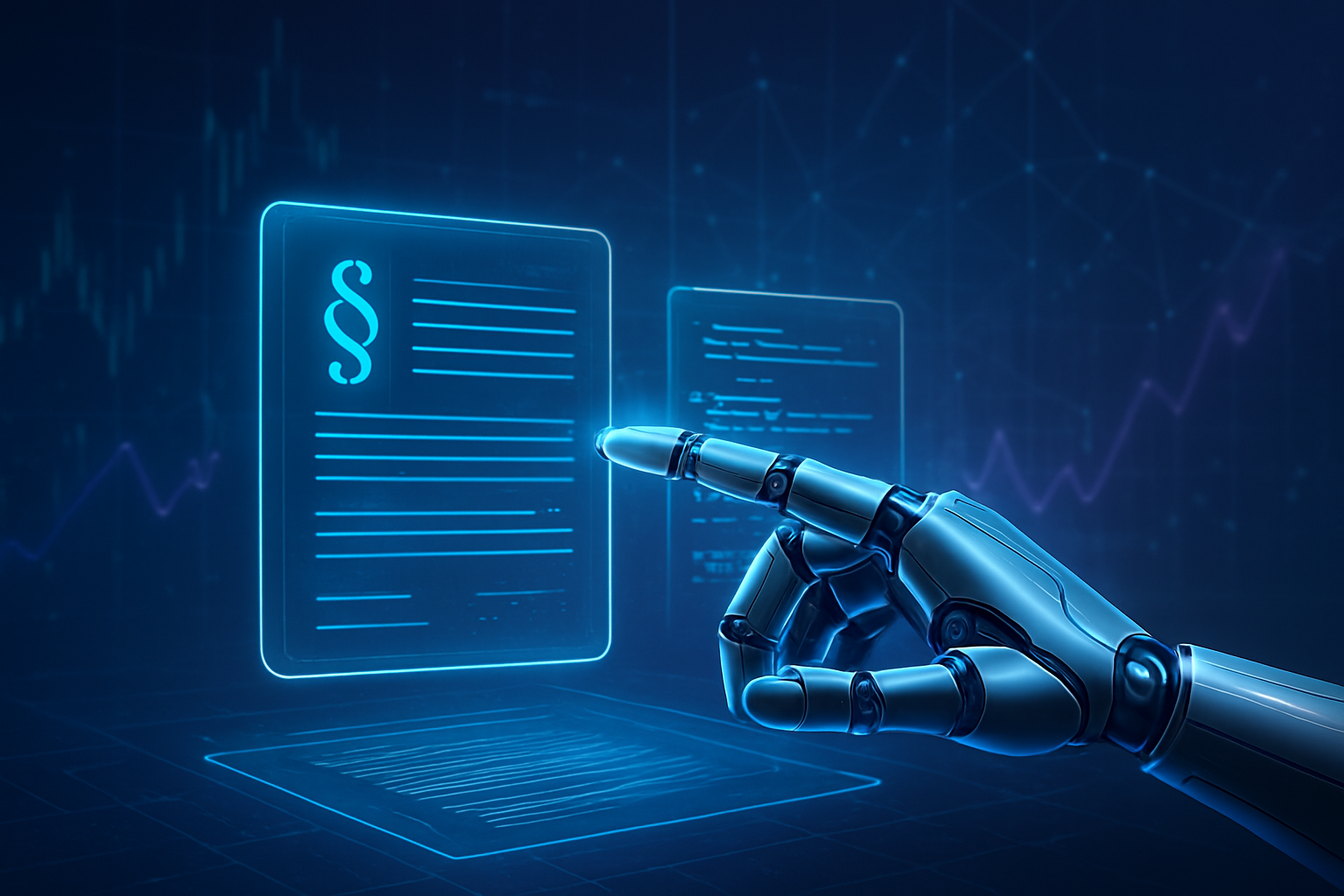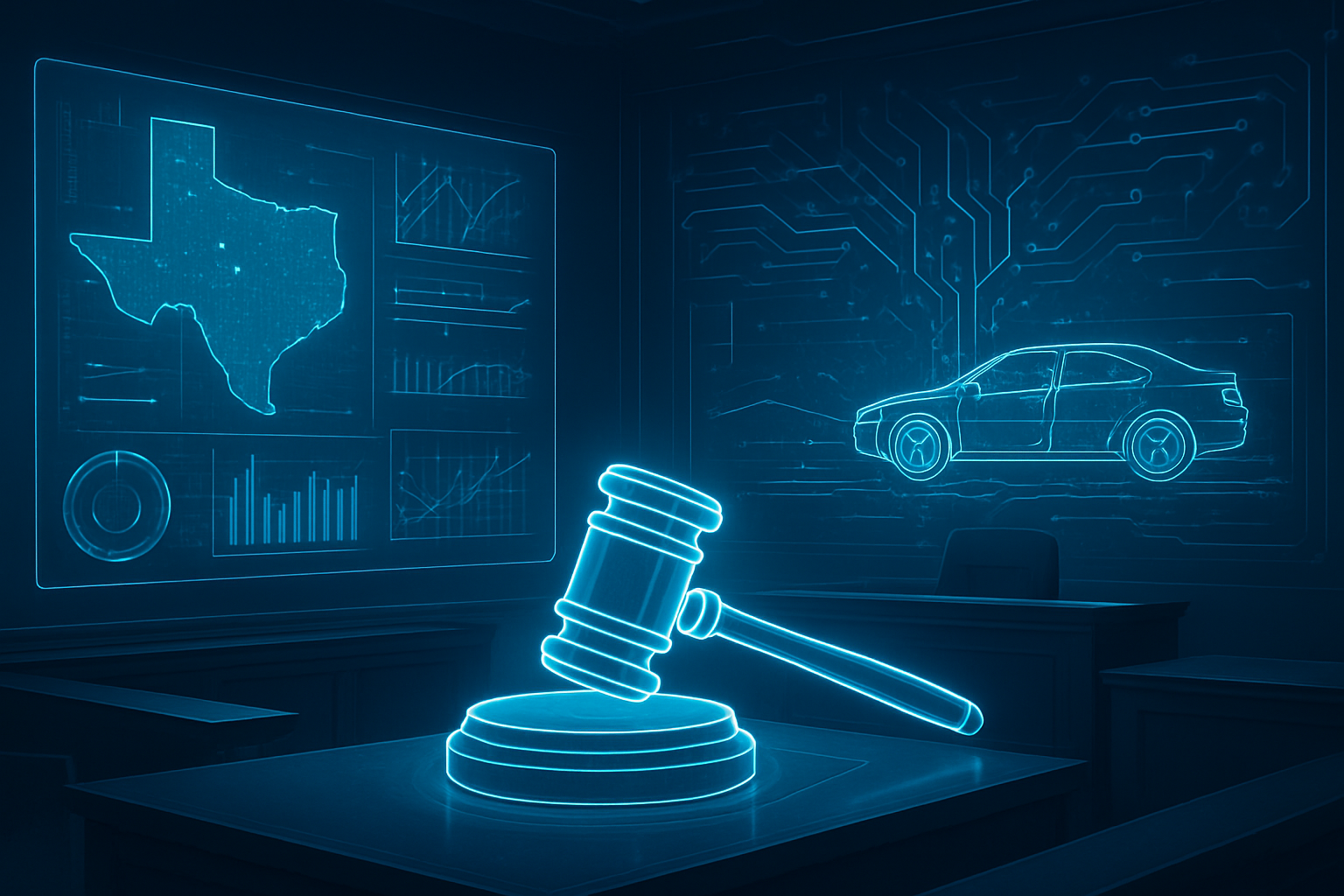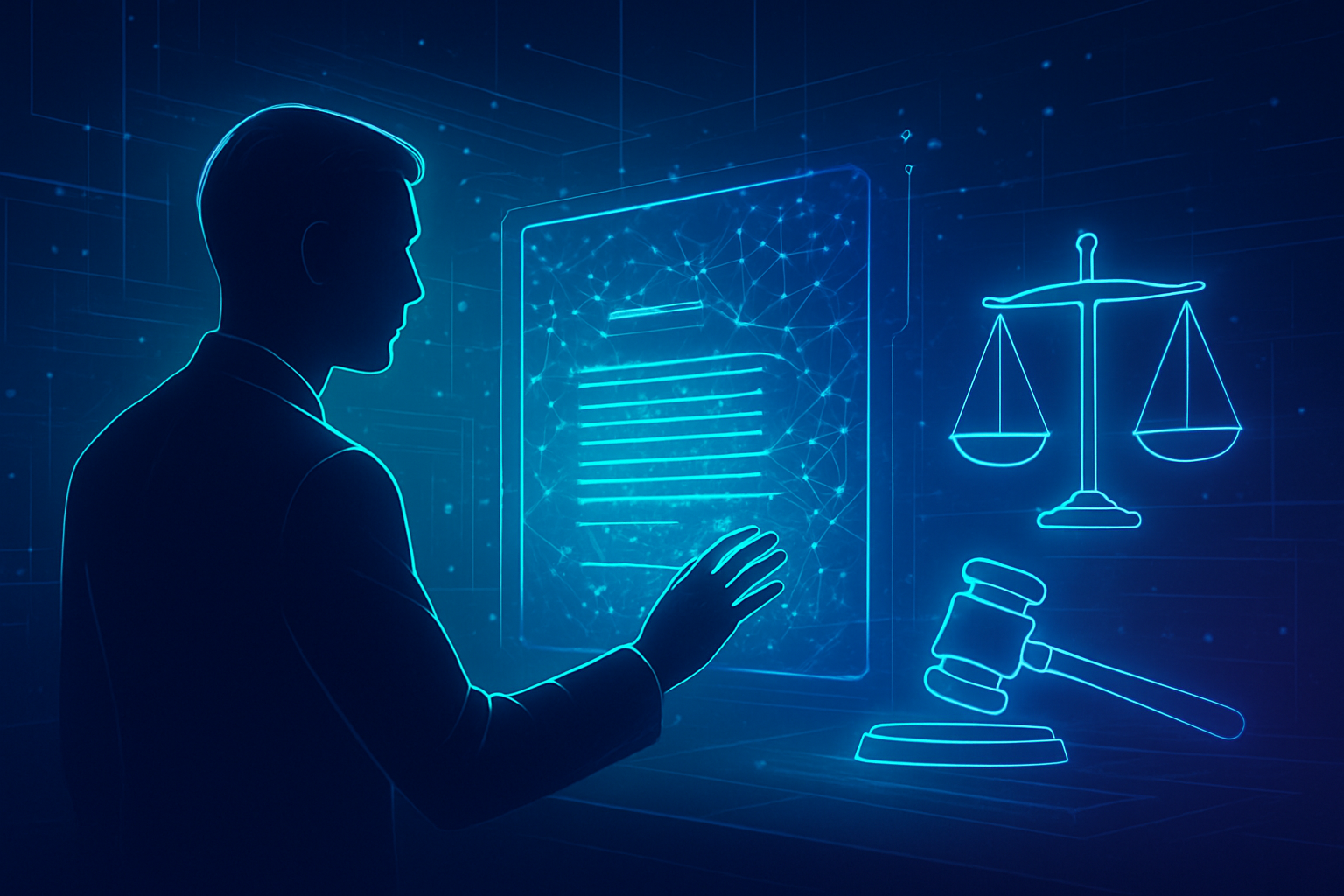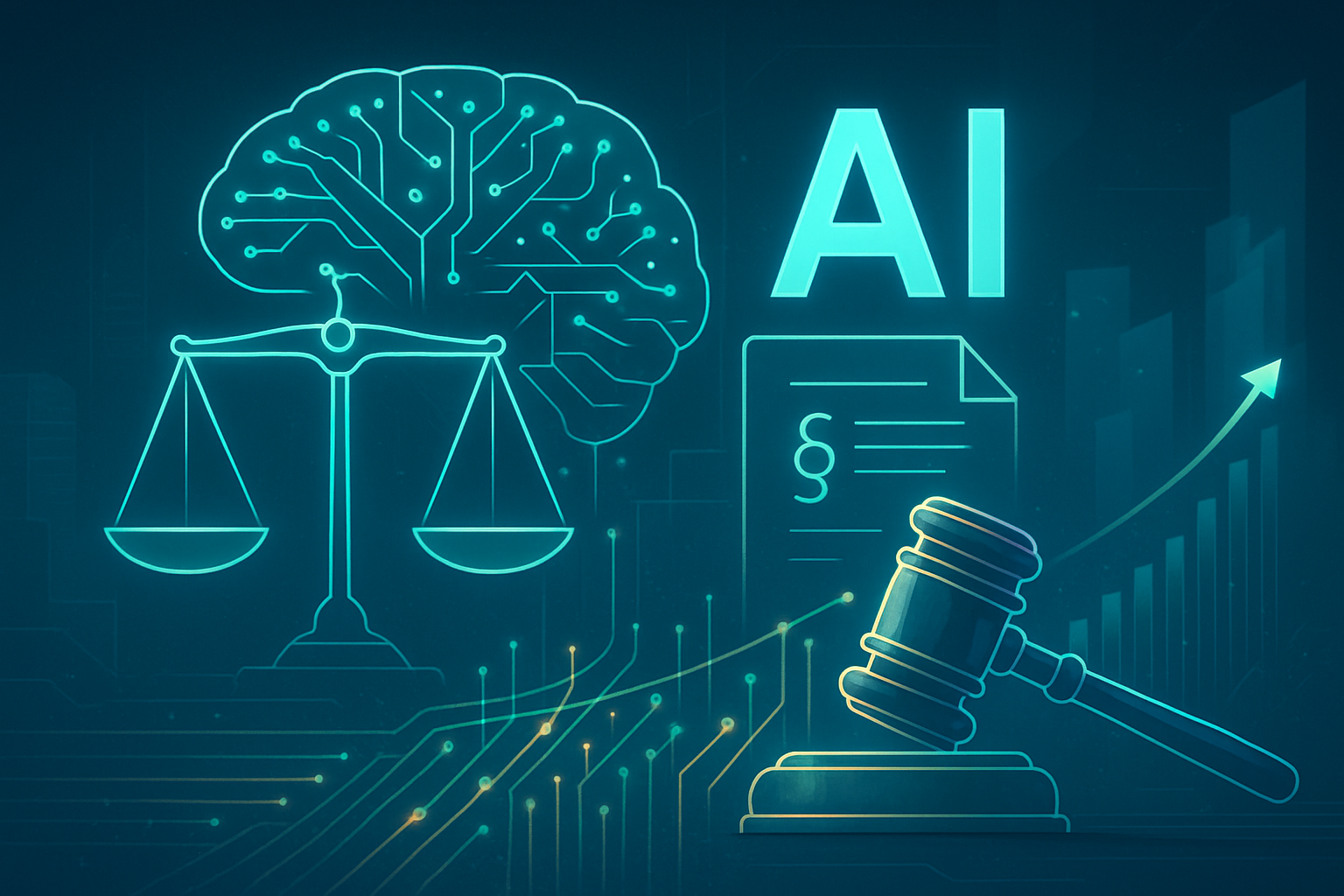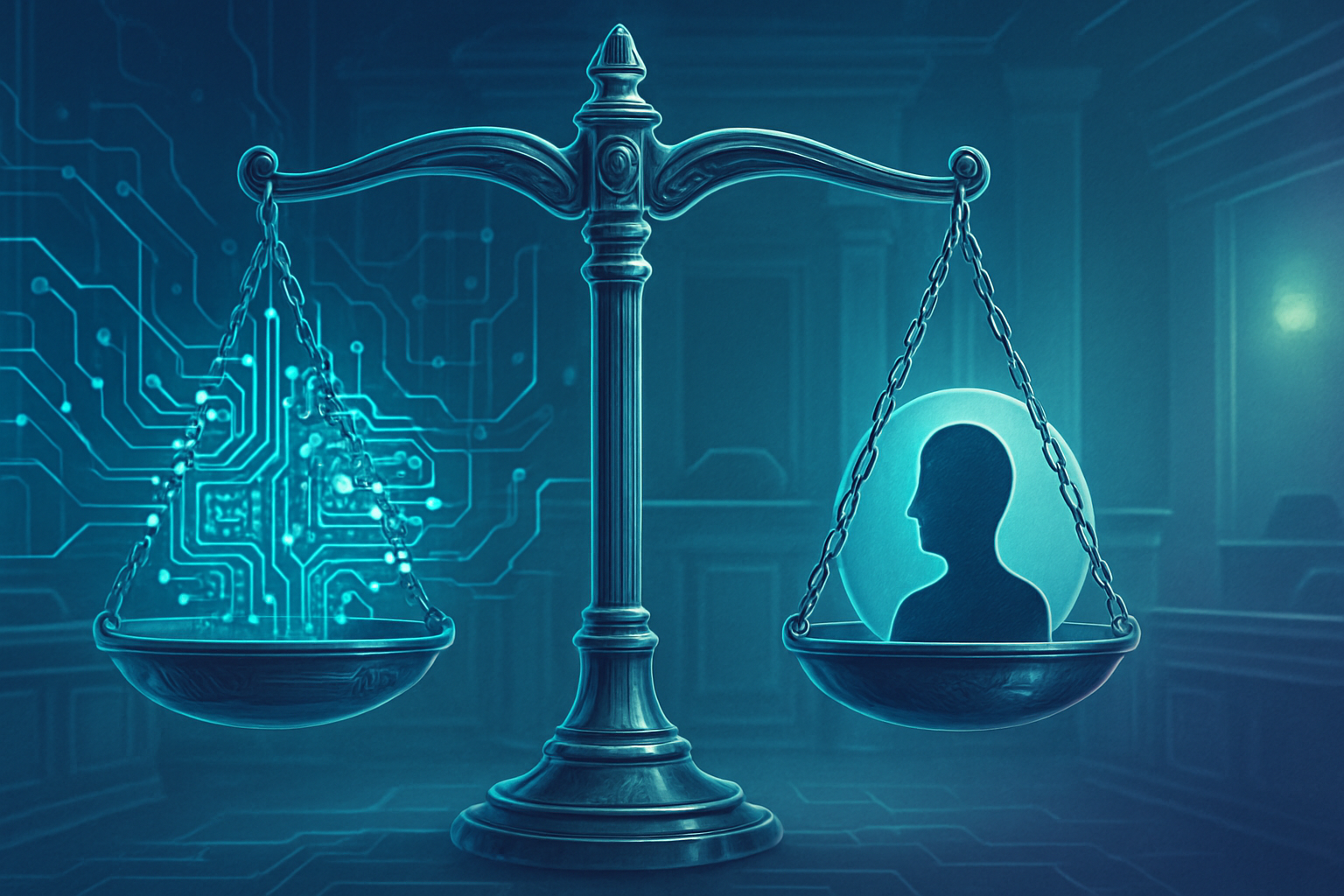Artificial intelligence (AI) is rapidly reshaping the landscape of personal injury law in Texas, ushering in an era where data analysis and predictive capabilities are transforming how cases are investigated, evaluated, and resolved. Far from replacing the indispensable role of human attorneys, AI is emerging as a powerful assistant, significantly enhancing the efficiency, accuracy, and strategic depth available to legal professionals and insurance carriers alike. This technological integration is streamlining numerous tasks that were once labor-intensive and time-consuming, promising a more data-driven and potentially fairer legal process for claimants across the Lone Star State.
The immediate significance of AI's foray into Texas personal injury cases lies in its unparalleled ability to process and analyze vast quantities of data at speeds previously unimaginable. This capability translates directly into faster case evaluations, more precise evidence analysis, and improved predictability of outcomes. The overarching impact is a fundamental shift towards more sophisticated, data-driven methodologies, making the legal field not only more efficient but also better equipped to handle the complexities of modern personal injury claims.
Unpacking the Technical Transformation: Precision and Speed in Legal Investigations
The core of AI's transformative power in personal injury law stems from its advanced capabilities in digital evidence analysis and accident reconstruction. These specific advancements represent a significant departure from traditional investigative methods, offering a level of detail and speed that manual processes simply cannot match.
At the forefront of this technical revolution is AI's capacity to revolutionize evidence collection and analysis. AI tools can swiftly examine digital evidence from a multitude of sources, including smartphones, fitness trackers, vehicle black boxes, and dashcams. By sifting through this digital footprint, AI can meticulously reconstruct accident scenes, ascertain vehicle speeds, determine precise points of impact, and even identify critical pre-collision data. This granular insight into accident causation and responsibility provides clearer, fact-based foundations for legal arguments. Furthermore, AI can analyze surveillance footage and photographs with remarkable precision, piecing together incident timelines and movements to support stronger, evidence-backed claims.
This approach dramatically differs from previous methods, which often relied on laborious manual review of documents, expert estimations, and time-consuming physical reconstruction. Before AI, extracting meaningful insights from extensive digital data required significant human effort, often leading to delays and potential oversights. AI-powered platforms, in contrast, can scan and analyze thousands of pages of medical records, police reports, and witness statements in mere seconds. They can flag important details, identify inconsistencies, and even note missing information, tasks that previously consumed hundreds of attorney or paralegal hours. This not only expedites the review process but also significantly reduces the potential for human error. The initial reactions from the legal community, while cautious about ethical implications, largely acknowledge AI's potential to enhance the quality and efficiency of legal services, viewing it as a tool that augments rather than replaces human legal expertise.
AI's Shifting Sands: Corporate Beneficiaries and Market Dynamics
The integration of artificial intelligence into personal injury cases in Texas is not merely a technological upgrade; it's a profound market reordering, creating significant opportunities for specialized AI companies, legal tech startups, and even established tech giants, while simultaneously disrupting traditional service models.
Leading the charge are AI companies and legal tech startups that are directly developing and deploying tools tailored for the legal sector. Companies like EvenUp, for instance, have gained considerable traction, with claims of significantly increasing settlement values for law firms, processing thousands of personal injury cases weekly, and directly impacting firms' ability to maximize claim values. Supio is another key player, automating a large percentage of case preparation, enabling law firms to scale operations without commensurate increases in staff. Legora is revolutionizing client matching, connecting injured parties with appropriate legal representation more efficiently. Other notable innovators include DISCO (NYSE: LAW), an Austin-based company offering cloud-native, AI-powered solutions for e-discovery and legal document review; Matey AI, specializing in accelerating investigations and automating complex reviews of unstructured data; and Parrot, an AI-first technology empowering attorneys with deposition support, offering immediate rough drafts and real-time summaries. Further specialized tools like Clio Duo (practice management), Casetext CoCounsel (legal research, now part of Thomson Reuters), Lexis+ AI (legal search and citation), and Harvey AI (workflow automation) are also poised to benefit from this burgeoning market.
Established tech giants are not standing idly by. Thomson Reuters (NYSE: TRI), a global content and technology company, has strategically integrated Casetext's CoCounsel, a GPT-4 powered legal research tool, directly into its offerings, enabling legal professionals to draft demand letters significantly faster. While not directly focused on legal tech, companies like Oracle (NYSE: ORCL), a Texas-based tech firm, are heavily investing in AI infrastructure, which can indirectly support legal tech advancements through their robust cloud services and AI development platforms. Even Google (NASDAQ: GOOGL), despite its broader AI focus, has the potential to leverage its general AI advancements into future legal tech offerings, given its vast research capabilities.
The competitive implications of AI adoption are substantial. Law firms that embrace AI tools gain a distinct advantage through increased efficiency, reduced costs in research and document review, and data-driven insights. This allows them to handle more cases, achieve faster and more accurate outcomes, and potentially offer more competitive pricing. Crucially, as insurance companies increasingly deploy AI to assess claims, identify potential fraud, and streamline processing, law firms that do not adopt similar technologies may find themselves at a disadvantage in negotiations, facing algorithms with superior data processing capabilities. Furthermore, a new layer of risk emerges for AI developers, who could face significant "deep-pocket" liability in tort cases if their technology is found to cause injury, a factor that could disproportionately impact smaller competitors.
AI's disruptive potential extends to virtually every traditional legal service. Automated legal research platforms are diminishing the need for extensive human-led research departments. Automated document review and generation tools are reducing the demand for paralegal and junior attorney hours, as AI can quickly scan, categorize, and even draft routine legal documents. Predictive analytics are disrupting traditional case evaluation methods that relied solely on attorney experience, offering data-backed estimations of claim values and timelines. Even client intake and communication are being transformed by AI-driven chatbots and virtual assistants. However, this disruption also creates new demands, particularly in oversight; the potential for "AI hallucinations" (fabricated case citations or information) necessitates robust human verification and the development of new oversight products and services.
In terms of market positioning, AI companies and legal tech startups are branding themselves as indispensable partners, offering specialized, proactive AI solutions that span the entire personal injury litigation lifecycle, from intake to resolution. Established tech giants emphasize reliability, scalability, and seamless integration with existing enterprise tools. Law firms in Texas are actively marketing their AI adoption as a commitment to providing "smarter, faster, fairer" services, leveraging technology to build stronger claims and achieve superior client outcomes, while carefully positioning AI as an assistant to human lawyers, not a replacement. Simultaneously, Texas universities, like the University of Texas, are establishing programs to prepare future lawyers for this AI-integrated legal practice, signaling a broader shift in professional education and market readiness.
Wider Implications: Ethics, Equity, and the Evolving Legal Frontier
The integration of AI into Texas personal injury law is more than just a localized technological upgrade; it reflects a profound and accelerating shift within the broader AI landscape, particularly in the legal sector. This evolution from rudimentary computational tools to sophisticated generative AI marks a significant milestone, acting as a "force multiplier" for legal professionals and reshaping fundamental aspects of justice.
Historically, AI's role in law was largely confined to pattern recognition and basic Natural Language Processing (NLP) for tasks like e-discovery and predictive coding, which helped to organize and search massive datasets. The current era, however, is defined by the emergence of large language models (LLMs) and generative AI, which can not only process but also create new content, understand complex natural language queries, and generate coherent legal texts. This represents a fundamental breakthrough, transforming AI from a tool for marginal productivity gains into one capable of fundamentally altering how legal work is performed, assisting with strategic decision-making and creative problem-solving, rather than mere automation. Specialized AI models, trained on vast legal datasets, are now emerging to automate time-consuming tasks like drafting memos and deposition briefs, allowing lawyers to dedicate more time to complex legal strategies and client engagement.
The impacts of this technological surge are multifaceted:
From a legal standpoint, AI significantly enhances strategic capabilities by providing more informed insights and stronger, data-backed arguments. Attorneys can now more effectively challenge low settlement offers from insurance companies—which are also increasingly AI-enabled—by generating independent, data-driven projections of claim values. However, the rise of AI in autonomous vehicles and smart devices also introduces complex new challenges in determining liability, requiring attorneys to develop a deep understanding of intricate AI functionalities to establish negligence.
Economically, AI is a powerful engine for productivity. By automating routine and repetitive tasks, it leads to reported productivity gains for lawyers and a substantial reduction in operational costs for firms. This efficiency translates into faster case evaluations and potentially more accurate claim valuations. For clients, this could mean more efficient and, in some cases, more affordable legal services, as firms can manage larger caseloads without proportionally increasing staff.
Societally, AI has the potential to expand access to legal representation. By reducing the time and cost associated with case preparation, firms may find it economically viable to take on smaller-value cases that were previously unfeasible. This "democratization effect" could play a crucial role in bridging the justice gap for injured individuals, ensuring more people have access to legal recourse and improved client service through faster communication and personalized updates.
However, the rapid adoption of AI also brings significant potential concerns regarding ethics, bias, privacy, and access to justice. Ethically, lawyers in Texas must navigate the responsible use of AI, ensuring it supports, rather than supplants, human judgment. The Texas Disciplinary Rules of Professional Conduct, specifically Opinion 705, outlines standards for AI use, emphasizing competence, supervision, disclosure to clients, confidentiality, and verification of AI outputs. Misuse, particularly instances of "AI hallucinations" or invented citations, can lead to severe sanctions.
Bias is another critical concern. AI algorithms learn from their training data, and if this data contains existing societal biases, the AI can inadvertently perpetuate or even amplify them. This could manifest in an AI system consistently undervaluing claims from certain demographic groups, especially when used by insurance companies to assess settlements. Vigilance in identifying and mitigating such algorithmic bias is paramount.
Privacy is also at stake, as AI systems process vast volumes of sensitive client data, including medical records and personal information. Lawyers must ensure robust security measures, data encryption, and meticulous vetting of AI vendors to protect client information from unauthorized access or breaches, adhering strictly to rules like the Texas Disciplinary Rules of Professional Conduct, Rule 1.05.
While AI promises to increase access to justice, there's a risk of a digital divide if these powerful tools are not equally accessible or if their outputs inherently disadvantage certain groups. Concerns persist that insurance companies' use of AI could automate claims processing in ways that primarily benefit the insurer, potentially leading to unfairly low settlement offers or the rejection of legitimate claims.
Recognizing these complexities, Texas has taken proactive steps with the Texas Responsible Artificial Intelligence Governance Act (TRAIGA), set to become effective on January 1, 2026. This landmark legislation adopts a unique approach, imposing requirements on both public and private sectors and outlining prohibited AI practices. TRAIGA specifically prohibits the development or deployment of AI systems with the intent to incite harm, engage in criminal activity, infringe constitutional rights, or unlawfully discriminate against protected classes. It also amends existing biometric privacy laws and establishes the Texas Artificial Intelligence Council and a regulatory sandbox program for testing AI systems under state supervision. Government agencies are further mandated to disclose to consumers when they are interacting with an AI system.
In essence, AI's role in Texas personal injury cases signifies a profound transformation, offering unprecedented efficiencies and analytical capabilities. Its wider significance is intrinsically linked to navigating complex ethical, privacy, and bias challenges, underscored by new regulations like TRAIGA, to ensure that technological advancement truly serves justice and benefits all Texans.
The Horizon of AI in Texas Personal Injury Law: A Glimpse into the Future
The trajectory of AI integration into personal injury cases in Texas points towards a future where legal processes are profoundly transformed, marked by both exciting advancements and critical challenges. Both near-term and long-term developments suggest an increasingly sophisticated partnership between human legal professionals and intelligent machines.
In the near-term (1-3 years), expect to see further enhancements to existing AI applications. Legal research and document review will become even more sophisticated, with AI platforms capable of scanning, analyzing, and synthesizing vast legal information, case law, and precedents in mere seconds, significantly reducing manual research time. Case evaluation and predictive analytics will offer even more precise estimations of claim values and resolution timelines, drawing from thousands of past verdicts and settlements to provide clearer client expectations and stronger negotiation positions. Evidence collection and analysis will continue to be revolutionized, with expanded use of AI to scrutinize data from dashcams, vehicle black boxes, traffic surveillance, smartphones, and wearable health devices, providing objective data for accident reconstruction and injury assessment. Streamlined client intake and communication, through advanced AI-driven chatbots and virtual assistants, will become standard, freeing legal staff for more complex tasks. The laborious process of medical record summarization will also see significant automation, extracting and organizing critical details with unparalleled speed.
Looking further into long-term advancements and new use cases, AI is poised to bring truly transformative changes. Advanced litigation strategy and trial preparation will benefit from AI that can offer insights into jury selection and even predict potential jury reactions to specific arguments. The horizon also includes Virtual Reality (VR) and Augmented Reality (AR) tools for highly precise accident scene recreations, offering judges and juries immersive and undeniable visual evidence. As insurance companies continue to refine their AI for fraud detection, personal injury lawyers will develop equally sophisticated AI tools to counter potentially biased algorithmic assessments and ensure legitimate claims are not unfairly questioned. The dream of hyper-personalized legal services, with AI continuously analyzing client data and case progress to proactively offer tailored advice, moves closer to reality. Furthermore, AI will evolve to draft more nuanced demand letters and pleadings, incorporating case specifics and relevant legal jargon with minimal human input, further automating crucial but routine tasks.
Despite this immense potential, several challenges need to be addressed for the ethical and effective deployment of AI. Ethical concerns and algorithmic bias remain paramount; AI systems, trained on historical data, can inadvertently perpetuate societal biases, potentially leading to unfair claim assessments or undervaluing claims from certain demographics. Vigilant human oversight is crucial to mitigate this. Data privacy and confidentiality are also significant hurdles, as AI systems process large volumes of sensitive client information. Robust security measures, strong data encryption, and strict compliance with privacy laws like HIPAA and the Texas Disciplinary Rules of Professional Conduct (Rule 1.05) are essential. The phenomenon of AI "hallucinations," where tools generate plausible but incorrect information or fabricated citations, necessitates constant human oversight and accuracy verification. The increasing integration of AI in autonomous vehicles and smart devices also raises complex questions of liability in AI-related accidents, making it difficult to prove how an AI decision led to an injury. Finally, while AI can streamline processes, it cannot replace the nuanced human judgment, strategic thinking, negotiation skills, and crucial empathy required in personal injury cases. The cost and accessibility of advanced AI tools also pose a challenge, potentially creating a digital divide between larger firms and smaller practices.
Expert predictions consistently emphasize that AI will not replace personal injury lawyers but will fundamentally redefine their roles. The consensus is that attorneys will increasingly leverage AI as a powerful tool to enhance efficiency, improve client outcomes, and free up valuable time for more complex strategic work, client interaction, and advocacy. Personal injury lawyers in Texas are already noted as early adopters of generative AI, anticipating significant gains in productivity, cost savings, and the automation of administrative functions. The future will hinge on how lawyers adapt to these new technologies, using them to provide the best possible representation while preserving the essential human connection and judgment that AI cannot replicate. Staying informed about advancements, adhering to best practices, and navigating ethical guidelines (such as Texas Opinion 705 regarding AI use) will be crucial for legal professionals in this evolving landscape.
Comprehensive Wrap-Up: A New Dawn for Texas Personal Injury Law
The integration of Artificial Intelligence into personal injury cases in Texas is not merely an incremental improvement; it represents a fundamental paradigm shift, redefining the very fabric of legal investigation and practice. From optimizing evidence analysis to enhancing strategic decision-making, AI is proving to be an indispensable asset, promising a future where justice is pursued with unprecedented efficiency and precision.
Key Takeaways underscore AI's profound impact: it is revolutionizing legal research, allowing attorneys to instantaneously sift through vast databases of statutes and case law to build stronger arguments. Digital evidence analysis has been transformed, enabling meticulous accident reconstruction and the identification of critical details from myriad sources, from dashcams to fitness trackers. Case evaluation and predictive analytics now offer data-backed insights into potential claim values and outcomes, empowering lawyers in negotiations against increasingly AI-savvy insurance companies. Furthermore, AI-driven tools are streamlining client communication, automating routine case management, and bolstering fraud detection capabilities, ultimately leading to faster, more efficient case processing and the potential for more favorable client outcomes.
In the broader history of AI, this development marks a crucial milestone. It signifies AI's successful transition from theoretical concepts to practical, real-world utility within a highly specialized professional domain. This is not the AI of simple pattern recognition or basic automation; rather, it is the era of generative AI and large language models acting as a "force multiplier," augmenting human capabilities and fundamentally altering how complex legal work is performed. It underscores a profound shift towards a data-driven legal evolution, moving the industry beyond purely qualitative assessments to more evidence-based strategies and predictions, while simultaneously demonstrating AI's potential to democratize legal processes by improving accessibility and efficiency.
The long-term impact will see the role of legal professionals evolve significantly. Attorneys will increasingly transition from manual, repetitive tasks to more strategic roles, focusing on interpreting AI-generated insights, providing empathetic client counseling, skillful negotiation, and rigorous ethical oversight. While AI promises the potential for more equitable outcomes through accurate damage assessments and predictive insights, the critical challenge of algorithmic bias, which could perpetuate societal inequities, remains a central ethical consideration. As both plaintiff and defense attorneys, along with insurance companies, embrace AI, the complexity and pace of litigation are set to intensify, demanding ever more sophisticated strategies. This necessitates the continuous development of robust ethical guidelines and regulatory frameworks, like Texas's TRAIGA, to ensure accountability, transparency, and the prevention of bias.
As we look to the coming weeks and months, several areas warrant close observation. Expect a continuous influx of more specialized and sophisticated AI tools, particularly in areas like real-time deposition analysis, advanced accident reconstruction simulations (including virtual reality), and more precise long-term injury cost estimations. The ongoing ethical discussions and the evolution of guidelines from legal professional organizations, such as the State Bar of Texas, will be crucial in shaping responsible AI adoption. Watch for early court decisions and emerging case law that addresses the admissibility of AI-generated evidence and the reliance on AI predictions in legal arguments. The insurance industry's further adaptation of AI for claims assessment will inevitably lead to new counter-strategies from plaintiff attorneys, creating a dynamic competitive landscape. Finally, the availability and uptake of training programs and continuing legal education (CLE) courses will be vital in equipping Texas lawyers and legal staff with the skills necessary to effectively utilize and critically evaluate AI tools, ensuring they remain competitive and continue to provide excellent client service in this new digital age of justice.
This content is intended for informational purposes only and represents analysis of current AI developments.
TokenRing AI delivers enterprise-grade solutions for multi-agent AI workflow orchestration, AI-powered development tools, and seamless remote collaboration platforms.
For more information, visit https://www.tokenring.ai/.
